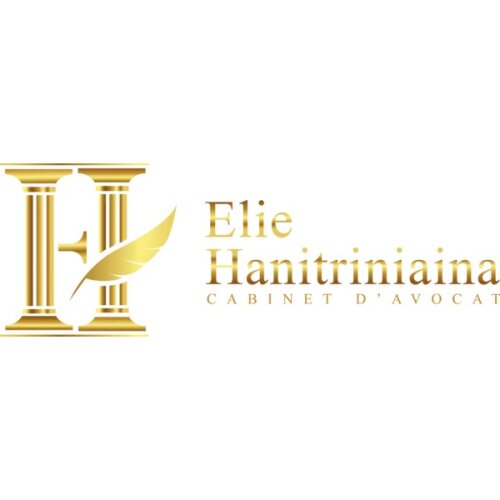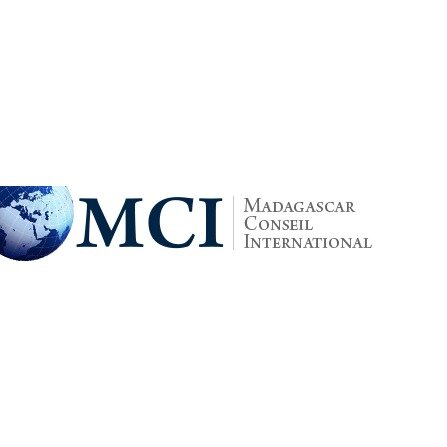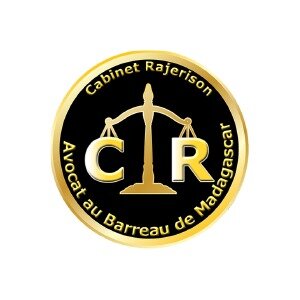Best Conveyancing Lawyers in Antananarivo
Share your needs with us, get contacted by law firms.
Free. Takes 2 min.
Free Guide to Hiring a Real Estate Lawyer
List of the best lawyers in Antananarivo, Madagascar
About Conveyancing Law in Antananarivo, Madagascar
Conveyancing is the legal process of transferring property ownership from one person or entity to another. In Antananarivo, Madagascar, this process is a vital part of real estate transactions and involves several steps to ensure the legal transfer of land or buildings. The conveyancing procedure traditionally involves title verification, property searches, preparation and registration of legal documents, and the facilitation of payment or funds. The legal landscape for property transfer in Madagascar is unique due to its colonial history and the influence of both French law and customary practices, making legal knowledge essential for successful property ownership or sale in the city.
Why You May Need a Lawyer
A qualified conveyancing lawyer in Antananarivo can guide you through the complexities of local property law and help avoid common pitfalls. Many people seek legal assistance during conveyancing under these circumstances:
- Buying or selling land or real estate
- Inheritance involving immovable property
- Gifting or transferring property among family members
- Resolving title disputes or verifying ownership documents
- Registering new real estate developments
- Dealing with co-ownership or partitioning property
- Managing property as a non-citizen or foreign investor
- Processing property mortgages and related transactions
Given the importance of having valid documentation and complying with local procedures, legal guidance minimizes the risk of future disputes and ensures that your transaction is recognized by Malagasy authorities.
Local Laws Overview
Conveyancing in Antananarivo operates under several legal regimes, largely influenced by the Malagasy Civil Code, specific decrees regarding immovable property, and customary land practices. Key aspects include:
- Title Registration: All land ownership transfers must be registered with the Direction des Domaines or local land offices. This ensures public recognition of ownership and protects against third party claims.
- Land Tenure: Madagascar recognizes private, state, and untitled land with different procedures for conveyancing each type. Local law mandates proper verification and formal documentation for any transfer.
- Due Diligence: Property searches and checks must be conducted to confirm the seller’s right to transfer and to identify any encumbrances such as mortgages, leases, or disputes.
- Notarial Involvement: Most property transfers require drafting by a notary (notaire), and only notarized deeds are admissible for registration.
- Foreign Ownership: Non-citizens cannot directly own land but can obtain long-term leases or invest through specific mechanisms approved by the government, requiring specialized legal structure.
- Taxation: Real estate sales incur registration fees, capital gains tax, and other notarial charges that must be settled before transfer is complete.
Complying with these requirements is essential to avoid future legal complications.
Frequently Asked Questions
What is the role of a notary in the conveyancing process?
A notary is responsible for drafting and authenticating the act of sale or transfer, ensuring all documents are complete, and handling registration with land authorities. Only notarized transfers are recognized by Malagasy law.
Can foreigners own land in Antananarivo?
Foreigners generally cannot own land outright but may lease property long-term or own buildings. There are special investment structures under the law for certain types of foreign investments, which require legal advice to navigate.
How long does the conveyancing process take?
The timeline varies depending on the complexity of the transaction, the type of property, and the volume of documents to review. On average, a straightforward conveyancing process may take several weeks to a few months.
What documents are required for property transfer?
Typically, you need an act of sale, title deeds, identity documents, tax clearance certificates, and any prior land certificates, along with payment of registration and notarial fees.
What risks should buyers be aware of?
Risks include dealing with disputed titles, unregistered land, unpaid property taxes, and existing mortgages or liens. Proper legal due diligence and property searches mitigate these risks.
Is it necessary to use a lawyer if I have a notary?
While not mandatory, hiring a lawyer is strongly advised. Notaries facilitate documentation and official acts, while lawyers provide independent guidance, protect your interests, and ensure due diligence.
Are all properties in Antananarivo registered?
Not all properties have formal title registration, especially those acquired through customary tenure. Buyers should always verify the legal status of a property before purchase.
How are disputes over property resolved?
Disputes are usually settled in court or through mediation. A lawyer can help prepare your case, negotiate settlements, or represent you in legal proceedings.
What taxes or fees are involved in conveyancing?
Conveyancing involves registration fees, stamp duties, notarial costs, and in some cases, capital gains tax or local council charges. Your lawyer or notary should provide a detailed breakdown.
What happens if there is a problem with the title after purchase?
If defects in the title are discovered post-purchase, legal remedies may include challenging the sale, seeking damages, or negotiating with previous owners. This further highlights the importance of thorough due diligence.
Additional Resources
For more information or assistance on conveyancing in Antananarivo, consider these resources:
- Ministère de l’Aménagement du Territoire et des Services Fonciers - Responsible for national land policies and registration.
- Direction des Domaines - The main authority for examining and authenticating land title documents.
- Chambre des Notaires de Madagascar - Provides notary listings and guidance on official property transfers.
- Local Bar Associations (Ordre des Avocats) - A source for qualified legal professionals specializing in property law.
- Municipal Land Offices - For local procedures and documentation in Antananarivo.
Official websites, local offices, or a lawyer can provide contacts and additional guidance specific to your situation.
Next Steps
If you are preparing to buy, sell, or transfer property in Antananarivo, Madagascar, it is crucial to follow these steps:
- Gather all available documentation about the property and confirm its registration status.
- Consult with a specialized conveyancing lawyer or notary familiar with local law and procedures.
- Conduct thorough legal and property checks to ensure a clear title and absence of disputes.
- Understand all fees and taxes applicable to your transaction.
- Arrange for the notarization and registration of the property transfer with the relevant authorities.
- Request clear, written advice from your legal professional on any outstanding risks or unresolved matters.
Seeking early legal guidance will streamline the process, give you peace of mind, and secure your interests for the future. If you need assistance, reach out to one of the legal resources or professionals listed above for tailored support.
Lawzana helps you find the best lawyers and law firms in Antananarivo through a curated and pre-screened list of qualified legal professionals. Our platform offers rankings and detailed profiles of attorneys and law firms, allowing you to compare based on practice areas, including Conveyancing, experience, and client feedback.
Each profile includes a description of the firm's areas of practice, client reviews, team members and partners, year of establishment, spoken languages, office locations, contact information, social media presence, and any published articles or resources. Most firms on our platform speak English and are experienced in both local and international legal matters.
Get a quote from top-rated law firms in Antananarivo, Madagascar — quickly, securely, and without unnecessary hassle.
Disclaimer:
The information provided on this page is for general informational purposes only and does not constitute legal advice. While we strive to ensure the accuracy and relevance of the content, legal information may change over time, and interpretations of the law can vary. You should always consult with a qualified legal professional for advice specific to your situation.
We disclaim all liability for actions taken or not taken based on the content of this page. If you believe any information is incorrect or outdated, please contact us, and we will review and update it where appropriate.














